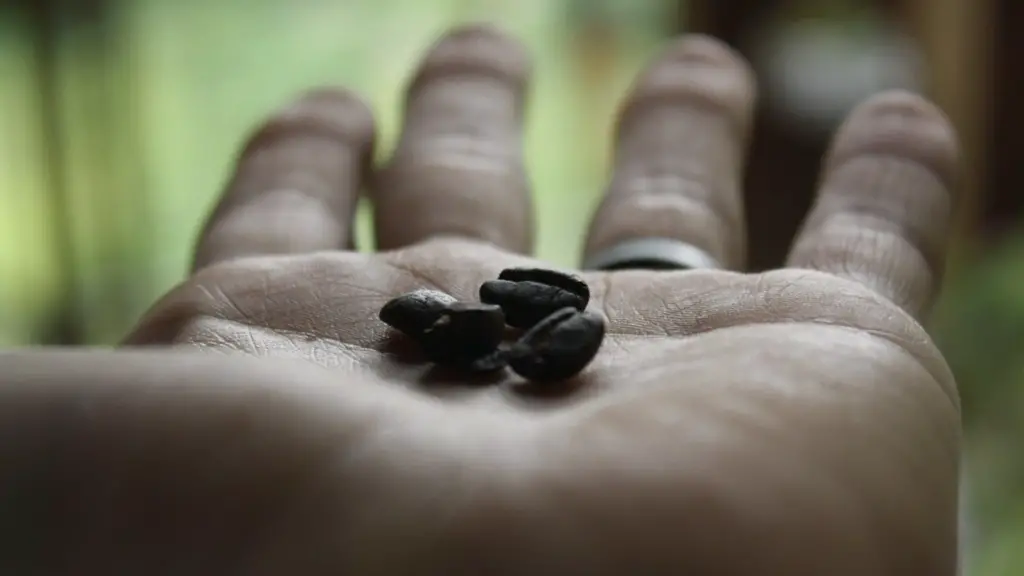Coffee is a common adult beverage, but can teenagers safely drink coffee, too? While this remains a controversial topic, it’s important to know the potential effects of caffeine on young people’s bodies. As a psychoactive drug, caffeine can be found in coffee, energy drinks, and soda. Caffeine stimulates the central nervous system and can cause mild physical and mental effects such as increased energy and alertness, faster heart rate and breathing, and jitteriness. Even though coffee is a common source of caffeine, it is important for teenagers to be aware of the risks associated with consuming caffeine before making the decision to drink it.
Understanding The Adverse Effects Of Coffee
Drinking coffee can cause a number of health issues for teenagers, including dehydration, insomnia, indigestion, decreased appetite, increased heart rate and blood pressure, and an increased risk of anxiety and depression. Studies have also linked consuming large quantities of caffeine to an increased risk for academic problems and difficulty sleeping. Furthermore, younger people are particularly sensitive to the effects of caffeine, which can interfere with the growth and development of growing bodies. It is therefore important to ensure that the amount and the regularity of the coffee consumption are monitored.
Developing A Moderate Consumption Of Coffee
Ideally, teenage coffee drinking should be monitored by their parents or guardians. Parents can play an important role in helping teenagers modify their caffeine consumption. They should encourage their teens to drink only in moderation and switch to milk-based and decaffeinated beverages when possible. Moreover, they should set a good example by not drinking too much themselves. In addition, teens should be taught and encouraged to switch energy drinks for milk-based and decaffeinated drinks.
Experts’ Perspectives On Teenager Coffee Drinking
Experts in the field of health and medicine advise that the consumption of caffeine in general, and coffee in particular, be avoided by those under 18. According to the American Academy of Pediatrics, children and adolescents should be discouraged from consuming caffeine until they reach adulthood. Meanwhile, the National Center for Complementary and Integrative Health advises people aged 12–20 to limit their caffeine consumption to no more than 100 milligrams per day, which is equal to a single cup of coffee, one energy drink or one soda.
The Pros And Cons Of Coffee Consumption By Teenagers
On the pro side, moderate coffee consumption in teenagers can improve concentration and focus, which can lead to better academic performance. Coffee also has beneficial antioxidants which can protect the body from various diseases. However, it is important to consider that drinking coffee can have adverse effects on the body. Caffeine is also addictive and can have a negative impact on a teenager’s emotional and mental health. So, even though coffee can be beneficial in moderation, it is important for parents to be aware of its potential risks.
Providing Alternatives To Coffee
For teenagers who are looking for an alternative to coffee, there are several other options that can provide a boost of energy and mental alertness. Teas, such as green tea and black tea, are an excellent alternative to coffee. They contain less caffeine than coffee, but still offer a range of health benefits and antioxidants. Other alternatives include chia seeds, whole grains and granola, Greek yogurt, and nut butter. All of these options are packed with vitamins, minerals, and healthy fats that can provide the energy and mental alertness that coffee provides while avoiding the adverse effects associated with caffeine.
Recognizing The Benefits Of Coffee To Teenagers
Despite the potential risks, there are some benefits to consuming coffee as a teenage. Coffee can help increase motivation and productivity, improve focus, and reduce stress. What’s more, moderate amounts of caffeine can help teenagers stay awake and alert when they need to. However, it is important to be aware of the potential risks associated with caffeine before consuming it. Teenagers should consult with their doctor or a dietitian for more advice and information about consuming coffee in moderation.
Learning When Coffee Consumption Becomes Hazardous
Although coffee can be beneficial in moderation, it is important to recognize when coffee consumption becomes hazardous. Teenagers should be aware of the risks of drinking too much coffee such as feeling jittery, having trouble sleeping, or feeling anxious. Parents should also be aware of the potential risks associated with coffee and talk to their teenager about the potential dangers of caffeine. It is also important to be aware of the signs and symptoms of addiction, which can include the need for higher doses of caffeine to get the same effects, and withdrawal symptoms when coffee is not consumed.
Debating The Finishes Of Coffee Consumption In Teenagers
Overall, coffee is not the healthiest drink for teenagers, and parents should be aware of the potential risks it can have on a teenager’s physical, mental and emotional health. While moderate amounts of coffee can provide benefits such as increased energy and alertness, it’s important to be aware of the potential risks associated with caffeine. Parents should talk to their teenagers about the potential risks before they make the decision to drink coffee. Furthermore, it is important to ensure that coffee consumption is monitored, and that alternatives are offered to coffee when possible.
Raising Awareness Of The Potential Risks Of Caffeine
In order to ensure that teenagers are consuming coffee safely, it is important to make them aware of the potential risks of caffeine. Education and awareness campaigns should be implemented in schools and other youth settings to teach teenagers about the potential effects of caffeine on their mental and physical health. It is also important for parents to be aware of their teenager’s coffee consumption and to provide guidance and support if necessary.
Addressing The Mental Health Implications Of Coffee Consumption
Coffee can have a significant impact on a teenager’s mental health. Studies have shown that caffeine consumption can contribute to feelings of depression, anxiety, and irritability. Furthermore, caffeine can exacerbate existing mental health conditions such as anxiety, OCD, and depression. As such, it is important for parents, teachers, and healthcare providers to be aware of the potential mental health implications of caffeine consumption and to address these issues if they arise.
Evaluating The Impact Of Social Media On Teen Coffee Consumption
Social media can also have a significant influence on the way teenagers view and consume coffee. Many social media posts depict coffee in a positive light, which can influence teenagers to drink it more often and in larger amounts. In order to reduce the impact of social media on teen coffee consumption, parents should monitor their teenager’s social media usage and cultivate an open dialogue with their teens about the potential risks of consuming too much caffeine.



